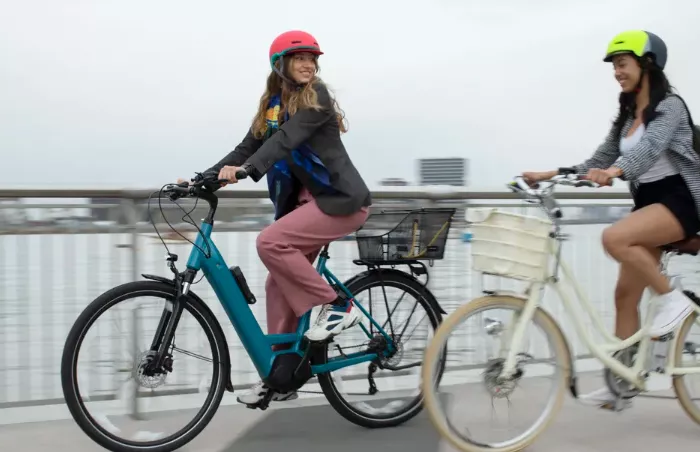Decision affects all non-folding e-bikes, allowing only folding models on TfL services from 31 March.
Transport for London (TfL) has announced a ban on most e-bikes from its services, set to take effect on 31 March. This decision has been met with criticism and concern, with some calling it a significant setback for active and sustainable transport in the capital.
TfL stated that non-folding e-bikes will no longer be allowed on the Tube, Overground, Elizabeth line, or the Docklands Light Railway (DLR). The move comes in response to a small number of incidents involving non-foldable e-bikes catching fire on the network, particularly those adapted with conversion kits, which TfL has identified as a greater safety risk.
Lilli Matson, TfL’s Chief Safety, Health, and Environment Officer, emphasized that the ban would play a crucial role in ensuring the safety of the transport system for all passengers.
Mayor of London Supports the Ban
Sadiq Khan, the Mayor of London, expressed his concern over the issue, stating that while most e-bikes are safe, incidents involving non-foldable models catching fire had raised serious alarms. He assured the public that the ban was a result of a comprehensive safety review and emphasized his commitment to working with government and partners to enhance e-bike safety in the city.
Fire Safety Concerns
Charlie Pugsley, Deputy Commissioner for Prevention, Protection, and Policy at the London Fire Brigade, pointed out the growing concern over e-bike fires. On average, a fire involving an e-bike or e-scooter occurs every other day in London. He particularly noted the risks associated with conversion kits and modified e-bikes, which can cause fires that are not only sudden and intense but also produce highly toxic smoke.
Industry Pushback
The decision has been criticized by some in the cycling industry. James Metcalfe, co-founder of VOLT Bikes, expressed disappointment over the blanket ban, calling it a “huge setback for active and sustainable transport” in London. He pointed out that many commuters who rely on their e-bikes to travel to and from stations would now face difficulties in continuing their journeys. Metcalfe suggested that a better approach would involve education and enforcement to address safety issues, rather than restricting access for users of safe and legal e-bikes.
Metcalfe further explained that the safety concerns are not necessarily about folding e-bikes being inherently safer but rather about the quality standards upheld by manufacturers like VOLT, who use trusted battery brands. He stressed the importance of consumer awareness about the risks associated with purchasing e-bikes, batteries, and conversion kits from unregulated sources.
Looking Forward
Metcalfe called for a more comprehensive solution, such as a national database for legal e-bikes, to ensure that only safe, high-quality models are on the road. He also argued that policies should focus on encouraging cycling and integrating it with public transport, rather than discouraging people from using e-bikes altogether.
As London moves forward with its new policy, the debate over e-bike safety and accessibility is likely to continue, with both sides emphasizing the need for safer, more sustainable transport solutions.
Related topics
- Ineos Cycling Team Turns to Sportfive to Secure New Non – Cycling – Related Partners
- Milan – San Remo Thriller: Van der Poel’s Decisive Sprint Beats Ganna and Pogačar
- Winning Is a Dream’ – Suspense Builds for Return of Women’s Milan-San Remo After 20 Years

